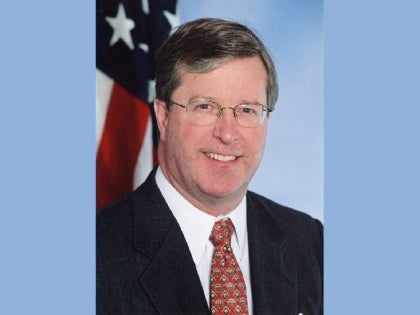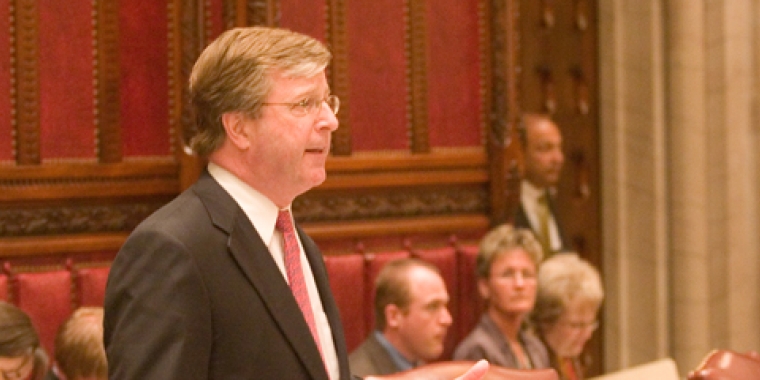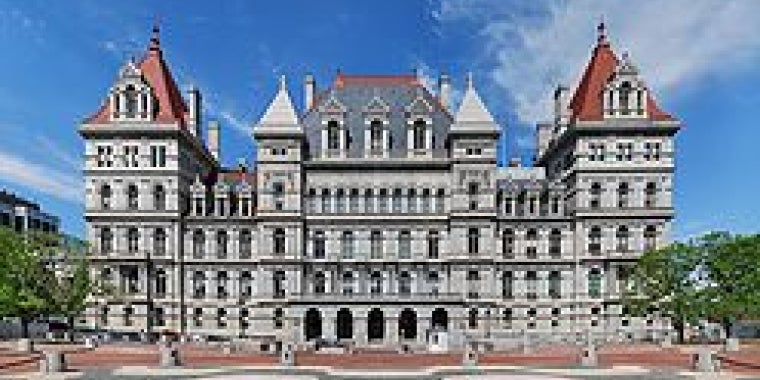
Lobbying Law Reform Becomes Law

Albany, N.Y.--
Legislation sponsored this year by State Senator George H. Winner, Jr. (R-C, Elmira) to broadly reform state laws governing lobbying for government contracts, has been signed into law by Governor George E. Pataki."This new law gets recorded as a home run on the government reform scorecard. We’re finally shining a light on the practice of government contract lobbying. It will provide a great deal of disclosure and transparency," said Winner, chairman of the Senate Ethics Committee.
Winner added that the law, which was given unanimous legislative approval in June, will bring the state’s procurement lobbying laws more in step with the Senate’s long-held goals of appropriate regulation, open reporting, accountability and fairness.
Some of the specific provisions of the lobbying law reform legislation will:
> curtail lobbying for government contracts. For the first time, contractors seeking state business would only be allowed to contact designated contract officers at state agencies and authorities.
Governor George Pataki issued an executive order two years ago requiring all state agencies and authorities to publicly disclose information on procurement lobbying. The legislation Winner sponsors, for the first time, requires state agencies and public authorities to designate contract officers. Contractors or their lobbyists would be prohibited from doing procurement contract business with any agency or authority official other than the designated contract officer;
> disclose more information about lobbying. Lobbyists seeking to influence the awarding of state contracts, executive orders and tribal compacts would have to disclose their efforts to the state lobbying commission, in the same way required of lobbyists seeking to influence legislation;
> provide new penalties for violations of the lobbying law. First-time violators would be subject to a fine of up to $10,000. A second violation within four years would result in a four-year ban from procurement lobbying. Any lobbyist violating an imposed ban on lobbying would be subject to a fine of up to $50,000, plus the amount of any compensation received by the lobbyist; and
> establish an 11-member Advisory Council on Municipal Lobbying to advise the state lobby commission on the implementation of the new procurement lobbying provisions.



